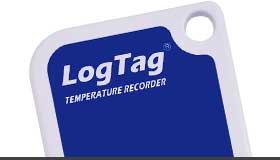How long will a vaccine fridge remain below 8° during a blackout?
The critical temperatures
2°C and 8°C are the official limits that a vaccine must be stored between.
Of the two temperatures, the lower one is the more critical. At 0°C certain vaccines freeze and become useless. This is important to keep in mind when dealing with the issue.
The higher temperature is less rigid because warm vaccines age faster, they don’t suddenly become ineffective. It’s similar to leaving milk out and having it go off faster. If it is kept refrigerated it will last weeks but leave it out in summer and it won’t last a couple of hours.
Losing power to a vaccine fridge
Losing power to a vaccine fridge obviously means you are losing the ability for the fridge to cool down. The speed at which it heats up is determined by a number of factors:
- How often you open the door: This is the biggest factor by far. Every time you open the door you are replacing the cold air with the warmer air outside. When you close the door this warmer air will heat up the contents while the contents try to cool the air.
- How warm the room is: This is more of an issue if you are opening the door, or if you have a glass door. If it is a cold day then you have less of a problem, but a failure in summer means you will need to be acting faster and be more cautious.
- The type of door: A glass door will let heat through more than an insulated door.
- The temperature within the fridge when the power failed: While this is mostly out of your control, the general setting of the fridge will impact on this. Having the fridge run between 5 and 7° means it will warm up sooner than if it was running between 3 and 5°.
- The size of the fridge: Warmer fridges generally maintain their temperature better than smaller fridges. Given that there’s nothing you can do about the size in the event of a blackout you can ignore this!
- The temperature of the stock: If stock does arrive during a blackout, cool stock won’t impact the temperature, but putting warm stock into a vaccine fridge will.
- The amount of stock/content in the fridge: The more content that is in the fridge, the better its heat regulation.
Preparing for a power failure
If you know that you are going to have a power outage in advance then there are a couple of simple things you can do:
- If you have multiple fridges, move the likely stock required into one fridge and keep the other one closed
- Consider using an eski as a temporary storage (see later with freezing warning)
- Minimise the amount of times you need to open the fridge. Take multiple units out at once if possible, but ensure that they aren’t left out too long. Consider using an eski.
- Don’t have stock arrive during the power outage.
- If you have room in the fridge, place bottles of water in the fridge before hand. Ensure they have sufficient time to cool down.
- For extended periods, get ice in and place ice at the bottom of the fridge. See the freezing warning.
During a blackout
Once the power fails there are a couple of things that you can try to do to minimise the temperature change:
- Don’t open the door
- When you do open the door, open it only enough to get access to the stock, and close it ASAP.
- Take multiple items out at once if you are likely to need it
- For extended periods, place ice at the base of the fridge. See the freezing warning.
Freezing warning
A couple of the tips involve the use of ice. This poses a more significant risk if done incorrectly.
Vaccines must NOT come in direct contact with the ice.
The temperature can not drop below 0°. Using an eski filled with ice is the most likely cause, but packing a fridge with ice will also potentially cause freezing.
There are ways of avoiding direct contact with ice such as using cardboard or material to act as a barrier. Don’t use too much or it will insulate the ice.
After the blackout
Check the maximum temperature of the fridge and if possible record how long it has been since the power failed.
A better solution is to have used a temperature logger which will provide not only the maximum temperature, but a detailed history as to when it exceeded 8°, for how long, and how warm the fridge actually became. This information is then better used to determine if the vaccines have been compromised. OnSolution can provide advice on the best temperature logger for your needs.
You may need to notify the authority to determine if the vaccine is still viable, or if it needs to be disposed of. If in doubt, do not use the vaccines until this check has been completed.
Free Vaccine Storage Poster
If you would like a free poster reminding staff about the vaccine storage temperatures please contact us. We have free A4 laminated posters available or we can email you a pdf version.

The post How long will a vaccine fridge remain below 8° during a blackout? appeared first on OnSolution.





